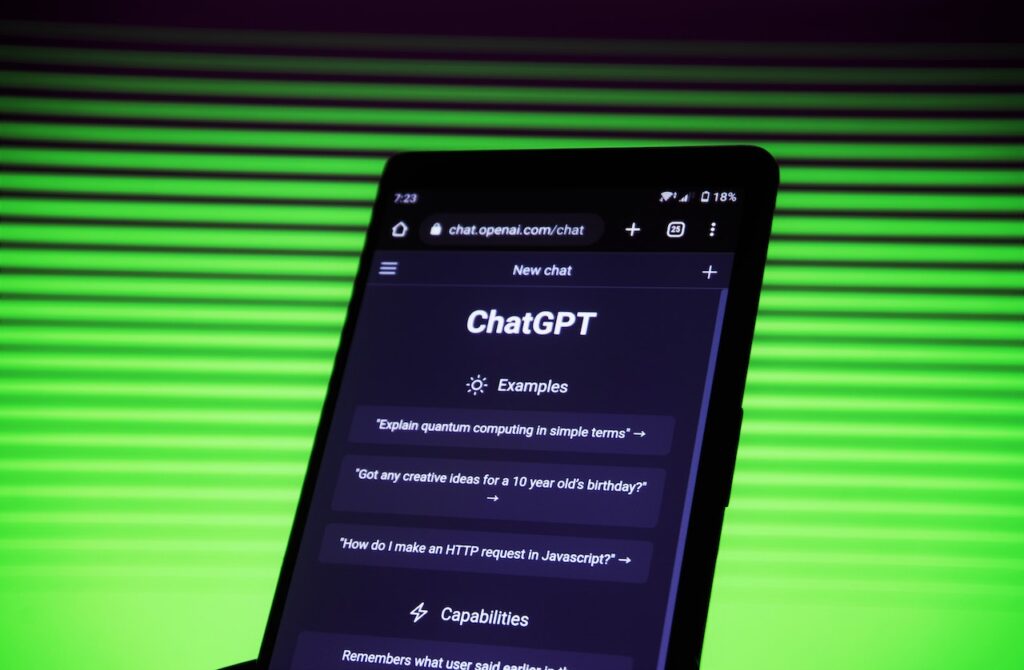Last week I read two fascinating reflections on using ChatGPT and other generative artificial intelligence (AI) in the classroom. The first is from Hong Yang, published in Nature. In this article, Yang explains why he started using generative AI and large language models (LLM) in his classes and why universities should include them in their curricula. “My students will soon graduate and start working, and their employers might ask them to work with AI models. If they don’t know how to use them properly, it could slow them down. We can’t stop students from using calculators or the internet, and we can’t stop them from using ChatGPT. It’s better to understand the tool and try to integrate it into teaching,” writes Yang, professor of environmental science and co-chair of the Black, Asian, and Minority Ethnic Network (BAME) at the University of Reading, UK.
The second article, written by Collin Bjork and published in The Conversation, exhorts schools and universities not to panic about the arrival of generative AI, particularly regarding academic plagiarism. Instead, the author invites us to think about other, much more significant threats that may affect other issues, such as equity in education. “Instead of worrying too much about plagiarism, educators would benefit from preparing for other AI inequalities, shown in the latest version of OpenAI: GPT-4,” warns Bjork, a senior lecturer at Massey University.
Both articles touch on crucial points, although with different approaches. On the one hand, Yang focuses on why it is essential to change traditional assessment methods so that students (and teachers) learn to use these tools to support their projects. In his case, he asked the students to give a 10-minute oral presentation and write essays to share their findings. “This approach not only reduces the chances of plagiarism but also makes the evaluation process more interactive and engaging,” notes the professor.
For his part, Collin Bjork explains that the fourth version of ChatGPT, although more secure and accurate, now costs $20 per month. While this may be a negligible price for many people (especially for what it offers), paying twenty dollars a month to use this tool is unthinkable for others, thus, opening a significant digital divide that is just beginning, a gap that could widen more through time. “This digital divide puts students and educational institutions in two camps: those with enough resources to enjoy the benefits of AI tools and those without the same financial flexibility, who get left behind,” says Bjork.
Both authors agree that generative AI can negatively impact diversity and inclusion in educational institutions. Yang gives the example of asking ChatGPT to give him a list of books on climate change and their authors, specifying to the AI that the list of books be given to him “regardless of race and language.” The result was disappointing, as all of ChatGPT’s recommended readings had been written in English. “Nine of the ten authors were white, and nine of the ten authors were men,” Yang said, warning readers that “using information from old books and websites to train large language models (LLMs) can lead to biased and inaccurate portrayals of the perspectives of people in marginalized communities while amplifying the voices of those in positions of power.”
Similarly, Collin Bjork warns that AI can perpetuate the global dominion of English at the expense of other languages, “especially oral and indigenous languages.” This is an issue that we, as an educational community, must heed now and in the years to come, as LLMs learn from online datasets with little indigenous content and an overwhelming amount of English content. “These threats are important because AI tools will soon be incorporated into Microsoft Office, search engines, and other learning platforms,” Bjork said.
I found both reflections exciting and refreshing because they did not focus on plagiarism as the only threat and critical point of using generative artificial intelligence like ChatGPT. Personally, I worry that the use of these tools perpetuates the status quo and the dominance of power groups, further minimizing the voices of minorities and historically oppressed groups.
I would like to know your point of view on these issues. Have you thought about these other AI threats? Beyond plagiarism, what other disadvantages do you discern in using these tools?
Translation by Daniel Wetta
This article from Observatory of the Institute for the Future of Education may be shared under the terms of the license CC BY-NC-SA 4.0 
)
)


)